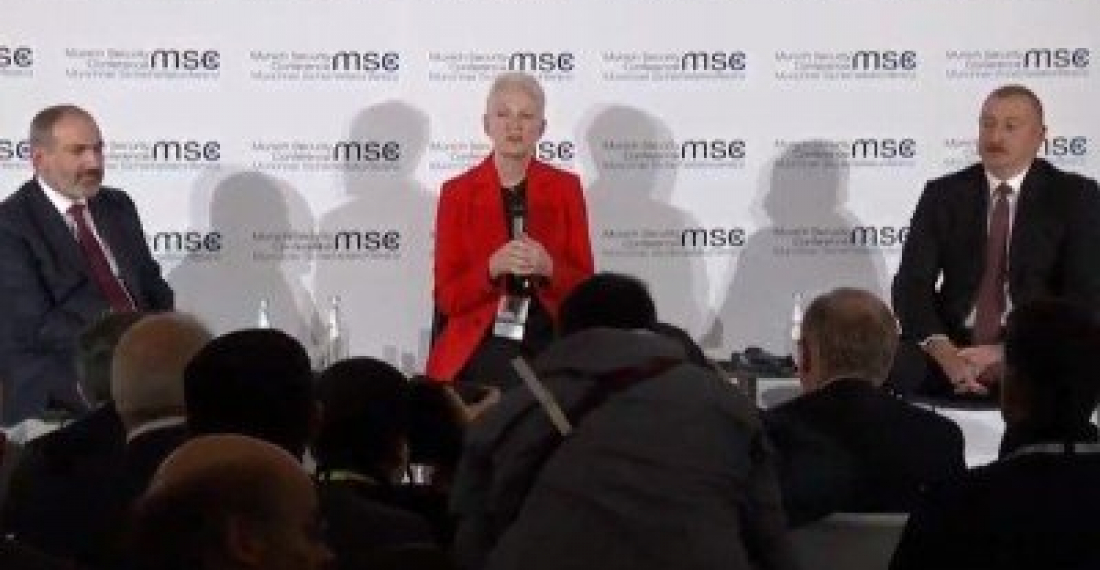The leaders of Armenia and Azerbaijan have held a public debate on the Karabakh conflict and its resolution. The unprecedented event took place on Saturday, 15 February in the framerwork of the Munich Security Conference,
This was the first time that the leaders of the two countries engaged in a public discussion with each other on what is one of the most sensitive issues for their respective societies.
At the start of the meeting president Ilham Aliyev of Azerbaijan said that such an event had been planned a few years back in the framework of the Davos Meeting, but that the previous Armenian leader had pulled out at the last moment.
Aliyev and Armenian prime minister Nikol Pashinyan debated in english for over forty five minutes. A lot of the exchanges focused on history and each side's right to claim Nagorno-Karabakh.
source: commonspace.eu
photo: Armenian prime minister Nikol Pashinyan and Azerbaijani president Ilham, Aliyev discussing the Karabakh conflict in the framework of the Munich Security Conference on 15 February 2020.







